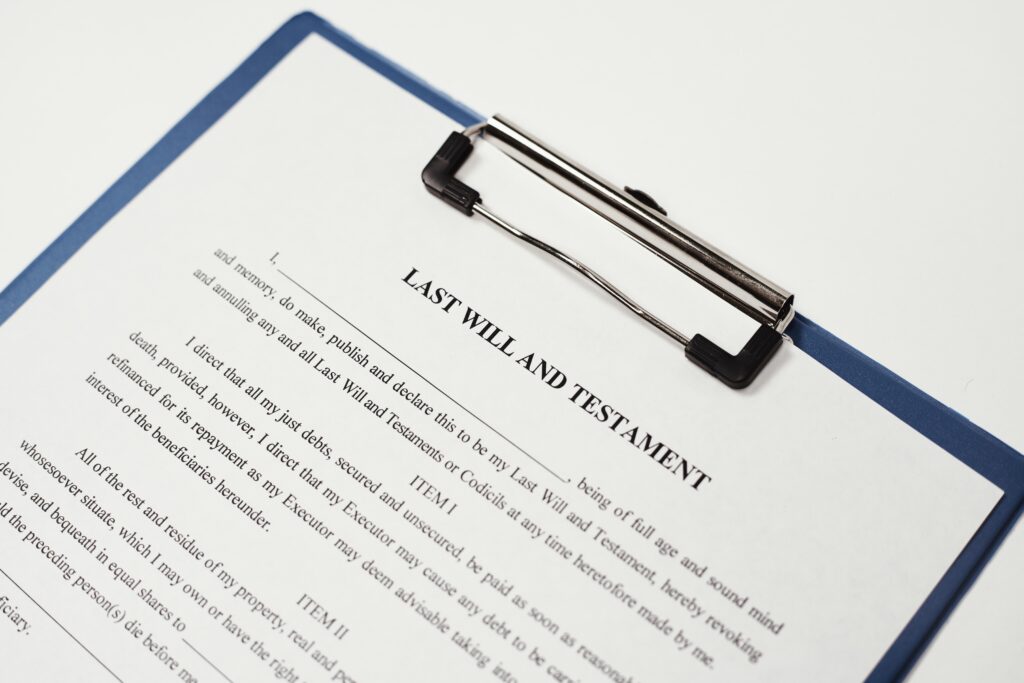Jump to a Topic
Does Tennessee Law Require Probate?
What Happens if You Die Without a Will in Tennessee
How Do You Avoid Probate in Tennessee with Estate Planning
Can an Executor of an Estate in Tennessee be Compensated?
How Many Witnesses Must Sign a Will to Make it Valid in Tennessee
How Much Does an Executor in Tennessee Get Paid?
How Long Does Probate of the Last Will and Testament Take in Tennessee?
Do All Estates Have to Go Through Probate in Tennessee?
Does a Will Have to Be Probated in Tennessee?
Settling an Estate in Tennessee
How Long Do You Have to File After a Death in Tennessee?
Probate Court in Tennessee
Probate Code in Tennessee
When a person dies, their assets must be dispersed and ownership transferred to the new heirs. Debts must be paid and the estate closed out. All this must happen while you are still grieving the loss of your loved one.
The legal term for the process is called probate. Probate must go through the courts to ensure the decedent’s wishes as outlined in their will are carried out. Anyone involved with an estate should understand the basics about probate in Tennessee.

Does Tennessee Law Require Probate?
Yes, probate is a requirement for estates in Tennessee. This is the method used to distribute the assets to the heirs and ensure the will is followed. In some cases, it is possible to avoid probate, especially if you utilize estate planning.
What Happens if You Die Without a Will in Tennessee
When you die without a will, it is called dying intestate. Under state law, assets that do not have listed beneficiaries will pass to their closest relative. If the decedent is married and has children, their assets will be divided among the spouse and children equally, with the spouse getting no less than one-third. If the decedent has no spouse or descendants but has parents and siblings, the assets would be distributed equally among the parents and siblings.
Adopted children will receive the same share as biological children, though foster and stepchildren will not. Typically, the decedent’s grandchildren will receive a share if their parents (the decedent’s children) have died.
How Do You Avoid Probate in Tennessee with Estate Planning
The best way to avoid going through probate with an estate is to plan before the owner dies. A revocable living trust with the entire estate will mean probate isn’t needed. The beneficiary who is named to the trust will be the new owner, and the court doesn’t need to get involved.
When you plan your estate, even if the estate must go through probate, not all assets will need to be included. Bank accounts, investment accounts, and retirement accounts won’t be part of probate if they have named beneficiaries. The same is true of life insurance policies.
If an asset was jointly owned, it would go to the new owner. There would be no reason to include it with the assets for probate.
Can an Executor of an Estate in Tennessee be Compensated?
The law in Tennessee allows for the executor of an estate to be compensated. They are paid for their time and for any expenses that they have from working on the estate.
How Many Witnesses Must Sign a Will to Make it Valid in Tennessee
Tennessee requires that a person is of sound mind and age 18 years or older before making a will, as it is considered a binding, legal document. The state accepts oral wills under certain conditions, and holographic wills (written by hand). However, the state requires that at least two witnesses must sign the will to make it valid. The two witnesses must sign the will in the presence of each other and the testator.

How Much Does an Executor in Tennessee Get Paid?
Compensation is mentioned in the Tennessee Code Chapter 30, Section 1-407. This section states that the court will approve compensation for the executor when the accounting is made or when the executor is appointed.
How Long Does Probate of the Last Will and Testament Take in Tennessee?
The timeline for probate varies, based on the size of the estate and how much work needs to be done. Expect it to take between six months and a year. If there are people contesting the will or other delays, the process will take even longer.
It’s not uncommon for large estates to be in probate for several years before being settled. Creditors have four months from the time of notice to submit claims, which means the estate must be open at least that long.
Do All Estates Have to Go Through Probate in Tennessee?
Most estates will go through probate in Tennessee. With the few exceptions mentioned, estates will need probate to distribute the assets. However, there are variations of probate, which you may need to be aware of.
Small estates don’t have to go through the long process of probate. Instead, they may use a simpler procedure as long as the estate is worth no more than $50,000 and there is no real estate.

Does a Will Have to Be Probated in Tennessee?
A will must be filed with the court in the county where the decedent lived. This record must be on file even if the estate doesn’t need to go through probate. It allows the court to verify the validity of the will if anyone contests it.
Settling an Estate in Tennessee
Succession Process
To settle an estate in Tennessee requires following specific guidelines. It is important to meet the deadlines and complete all the steps in the process.
Step 1
File a petition with the court to open probate.
Step 2
The court appoints an Executor of Estate of Personal Representative.
Step 3
The Executor of the Estate notifies the heirs and publishes notice of probate for creditors.
Step 4
The Executor takes inventory of all assets of the estate and appraises their value.
Step 5
The Executor pays the debts of the estate, including any money owed to creditors who file a claim against the estate. If assets must be sold to pay the debts, the executor will need to get approval from the court for the sale.
Step 6
The final tax returns are filed and any taxes are paid from the estate.
Step 7
The assets of the estate are distributed to the heirs and succession is closed.
Tennessee settles an estate much the same way as in other states. The basic process is the same even though the details will change.
- A petition is filed with the court to have probate opened. The court approves the executor or personal representative.
- The executor notifies the heirs and publishes notice for any creditors.
- The executor must take inventory of the estate and secure all assets. They may need to hire an appraiser for some assets.
- Taxes must be filed and paid and other creditors paid. The executor may have to sell some assets if there isn’t enough money to pay the debts.
- Once all other debts are paid, the executor will distribute the remaining assets to the heirs and transfer ownership as necessary.
In large estates, this process can take some time and become quite complicated. Even though Tennessee doesn’t require an attorney for probate, it can be helpful to seek legal counsel from an estate attorney. The exception to this rule is in Davidson County, which is Nashville. All filings must be done by a licensed attorney for probate.
How Long Do You Have to File After a Death in Tennessee?
Tennessee doesn’t give a deadline for when probate must be filed after someone dies. There is no penalty for holding onto a will, which means they may come forward at any time. However, most estates will file quickly if the heirs are anxious to have the process settled.
Probate Court in Tennessee
Probate is handled in the Trial Courts of Tennessee. Probate courts have the power of administration of estates and probating wills. They are divided by district with the state having 31 judicial districts. Each district has circuit courts and chancery courts.
Within these two courts may be a separate probate court. Otherwise, it is handled in the chancery court. You can find the name of the clerk and the location and contact information of the court on the Tennessee Courts website: Clerks | Tennessee Administrative Office of the Courts (tncourts.gov). If you visit the county court website, you may also find information on a separate probate court.
Probate Code in Tennessee
Title 32 of the Tennessee Statutes is on wills and probate. To find out details about these statutes, you can visit the Tennessee Courts website: Tennessee Code – Lexis Law Link | Tennessee Administrative Office of the Courts (tncourts.gov).


